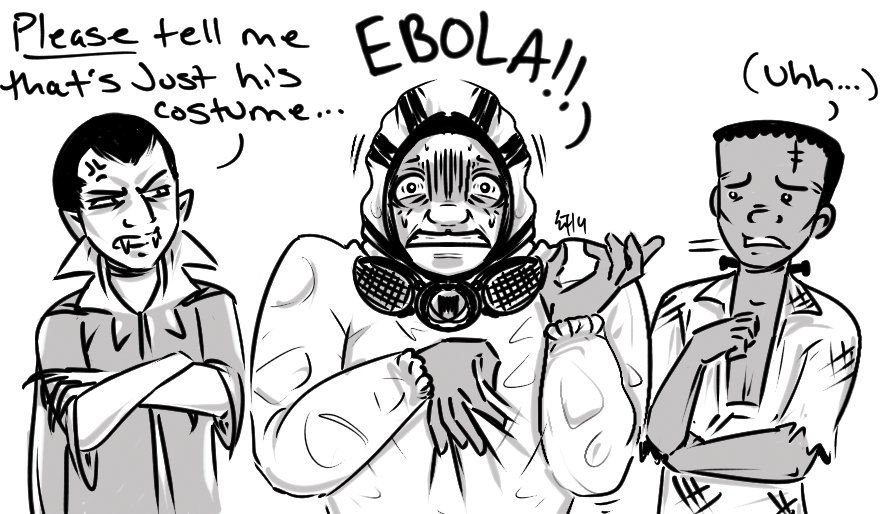Ebola is a hot topic right now, with a news headline featuring the infectious disease daily. It is not a force to be reckoned with as there is no known cure for Ebola, and the deadliest strains have been known to kill 90 percent of the people they infect, according to the World Health Organization.
Having said that, the mainstream news media has been having a field day wringing hands and promoting terror as the distressing news of the outbreak in West Africa has captivated the imaginations of pundits everywhere. U.S. media outlets have been completely irresponsible for reporting on the virus as if it’s entering every household as they speak. The panic that has ensued from dramatic news exposure has resulted in the decline of airline stock which consequently caused the market to plummet 200-plus points. Moreover, parents in Texas are not sending their kids to school out of fear that their child will be exposed to someone who knew the first man diagnosed in the country.
The frenzy the media has created is counter-productive and they are failing in doing their job of broadcasting the facts.
It is not just the media to blame, as South Carolina’s U.S. House Representative Joe Wilson has speculated that terrorists are the ones who have used Ebola to attack the United States. It seems a familiar trait of politicians to fuel panic amidst the public for political gain, advocating for travel bans and quarantines that could potentially make the outbreak in Africa worse and put the United States at a greater risk.
Joe Wilson is not the only one circulating ideas of Ebola being linked to terrorism. Jonathan Last, a Weekly Standard columnist, printed an article on Oct. 27 that listed the many reasons to panic about the destruction that Ebola could wreak within the U.S. Last raises the question “what’s to stop a jihadist from going to Liberia, getting himself infected, and then flying to New York and riding the subway until he keels over?” This is careless journalism and it is reckless to distribute unnecessary panic.
Universities are also guilty of naivety as they are uninviting guest speakers and visitors who have ever travelled to Africa.
Richard Besser, chief health editor at ABC News, wrote a column for the Oct. 15 issue of The Washington Post where he said he was scheduled to speak at Case Western Reserve University in Cleveland about how the U.S. handled the 2009 flu pandemic. The university decided to not let Besser speak since he’d returned recently from a trip to cover the Ebola outbreak in Africa, even though he said, “The level of risk posed by my appearance was vanishingly small, but fear won anyway.”
Besser received a letter from the university saying, “Although they understand how small the risk is, they felt that we needed to err on the side of extreme caution because we don’t have the ability to ask all potential attendees if they feel comfortable with the situation.”
Evidently conspiracy theories are in full force and the people who have been misinformed by news channels and article headlines buy into a complacent outbreak narrative that alters the true dangers and puts public health at risk.
This current outbreak of Ebola still has a ways to go before it touches the level of the most serious infectious diseases that anyone of us is likely to come across. Undeniably the current outbreak of Ebola is an important public health issue that we must be aware of. However, it is important that we do not buy into the shock and panic. Unless you plan to visit the affected regions of Africa anytime soon, you’re probably in the clear.








